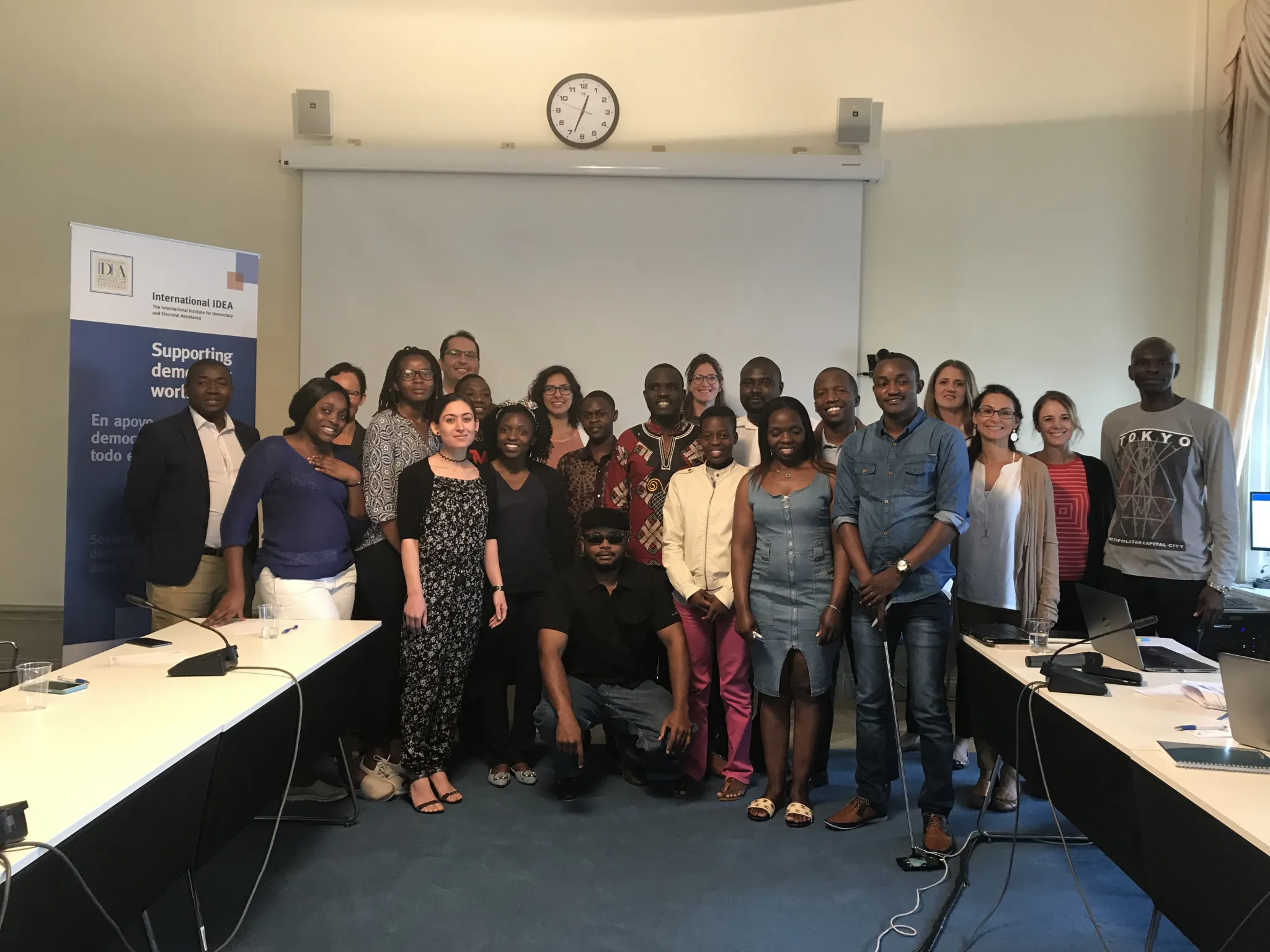Study Visit - Raoul Wallenberg Institute’s Zimbabwe Human Rights Capacity Development Programme

A delegation of 15 young Zimbabwean leaders visited International IDEA’s Stockholm headquarters on 20 August to discuss the state of Zimbabwean democracy, the recent elections and the prospects for Zimbabwe’s youth in the future. Among the visitors, opinion was divided over the latter question: some asserted that these prospects are brightening, despite the many problems afflicting the beleaguered Sub-Saharan nation, while others took a more cynical stance.
Leading publications such as Time magazine, the Guardian and the New York Times have been vocally critical—but not too critical—of Zanu-PF and the authorities' handling of the recent elections, echoing the cautious criticism of electoral observers such as the EU Election Observation Mission. Zimbabwe is an extremely youthful country and 0-14-year-olds made up 41.5 per cent of the population in 2015, a figure that had barely changed since 1950 (UNDESA 2017). Among its younger citizens, there is a widespread feeling that the old guard must step aside and that real change, when it comes, must be profound and far-reaching.
For the delegation of emerging leaders, the study visit was just one stop in an event-filled trip to Sweden, organized by the Raoul Wallenberg Institute as part of its Zimbabwean Human Rights Capacity Development Programme. The group of 15 represented a wide-ranging variety of different societal sectors, boasting senior members from students’ and farmers’ unions, industry groupings, youth groups and political parties, besides traditional leaders (members of the Council of Chiefs, ZCC) and other talented individuals with backgrounds in law, medicine and media.
A round table discussion led to a rich exchange of ideas with International IDEA staff. Participants espoused many interesting viewpoints, illuminating themes such as residual cultures of fear, misinterpretation of data, issues hindering post-conflict reconciliation, and the knock-on effects that all of these factors have upon democratic processes. Many of these points were articulated in response to Zimbabwean country data drawn from the Global State of Democracy indices, presented by the staff of International IDEA’s Democracy Assessment and Political Analysis unit. Observations included the following:
- Electoral turnout, often cited as an indicator of healthily functioning democracy, may actually convey very little where coercion and the threat of violence are present.
- Contested understandings of bureaucratic systems (either as expedients of or impediments to good governance) highlight the need for ‘good’ bureaucracies to simultaneously support and check politicians.
- While certain analytical categories like gender and ethnicity receive a lot of attention, other constituencies (such as people with disabilities) remain largely ignored by many countries’ record-keeping. Regretfully, this habit of oversight is not confined to bureaucrats—within the analyses of many political commentators, including International IDEA, the role and status of people with disabilities are conspicuous only by their absence.
- Moreover, the physical environment facilitates or hinders progressive change just as the social environment does, as in the case of disabled access provisions.




